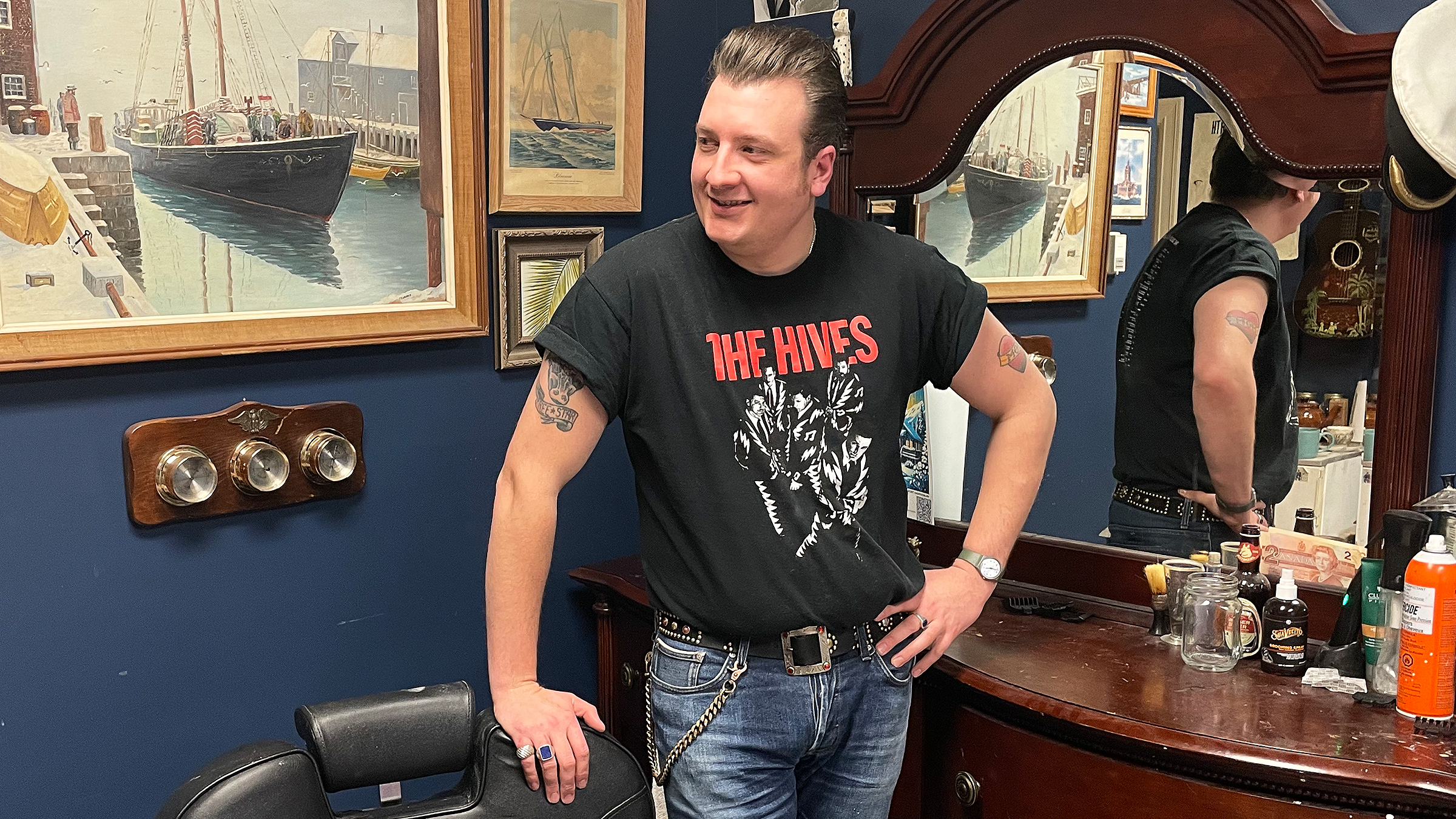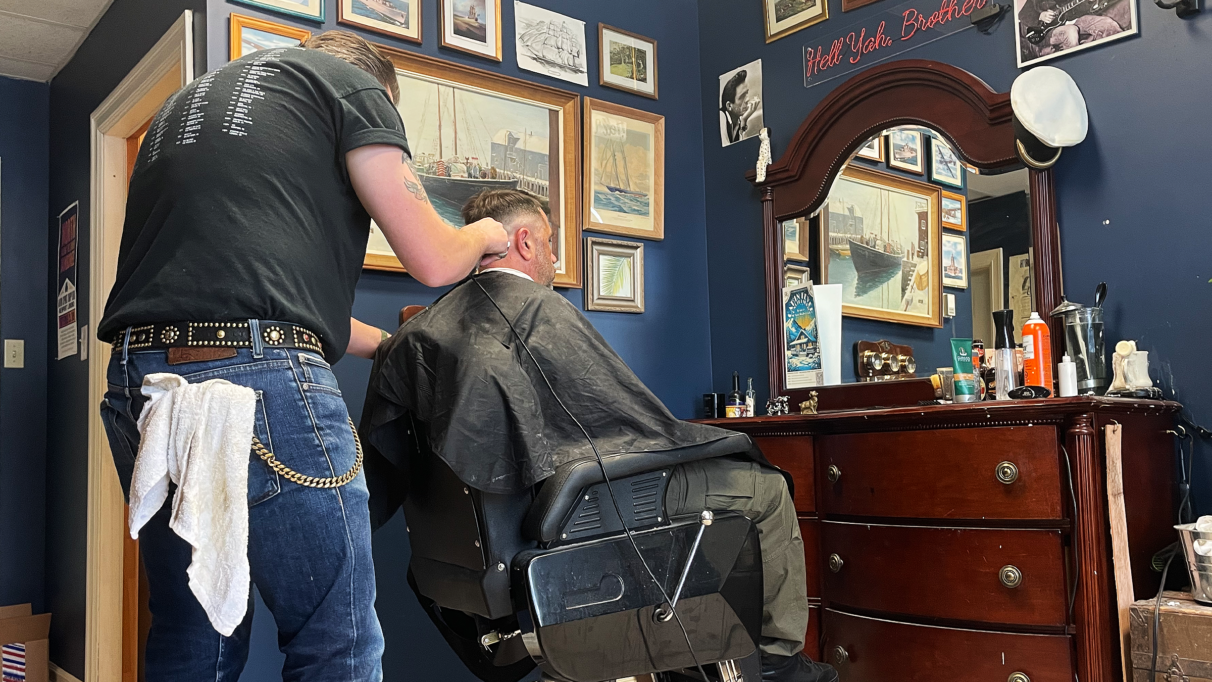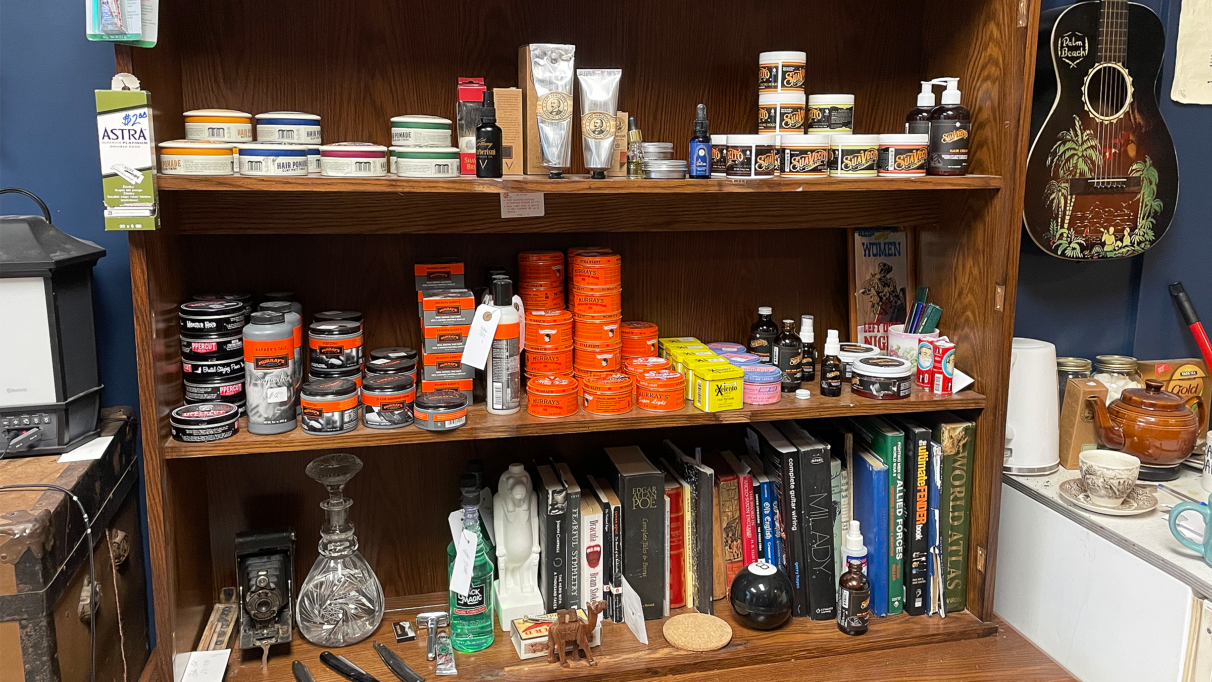Musician snips out his niche with vintage barbershop
Willie Stratton embraces tradition, opens small business from his home

caption
Willie's Barbershop opened in November 2023. It is the newest barbershop in Port Hawkesbury.Known for his retro stylings of surf rock, twangy country, rockabilly and Americana, Willie Stratton has been a staple of the Nova Scotia music scene for over a decade. Now, he is operating a small business from inside his home – a throwback-style barber shop.
Last summer, Stratton and his partner Sara moved from Halifax to Port Hawkesbury, a small town in Cape Breton. While the town has several places to get a haircut, Willie’s Barbershop is the newest spot in town for a trim. Many barbershops in Port Hawkesbury have been open for well over a decade, but Stratton says his list of clientele has been diverse and growing.
“I get a pretty good cross-section,” he says. “I don’t ever want to have a shop that feels like, ‘Oh, maybe I shouldn’t be in here.’ I want to be old school in a way that old people feel comfortable, but hip in the same way that might not chase away the young fellas,” he adds.
Steve MacIntyre, a musician living in Port Hawkesbury, met Stratton through music a few years ago and the two reconnected when Willie needed help moving a couch into his shop. Now, MacIntyre stops by for a trim when he needs one.
“It’s like kind of what an old-timey barbershop should be,” said MacIntyre. “He’s always got some good music playing, he’s got lots of product in there so it smells good, and it’s just what you would imagine when you think ‘barbershop.’ ”

caption
Stratton performs haircuts, beard trims, and hot shaves in his shop.Walking into Willie’s Barbershop can feel like stepping into the past. The smell of hair products, the sounds of The Doors over the speakers, and the sinking sensation when sitting on the scratchy floral couches is a scene from a 1970s Super 8 home movie camera.
When scanning the room, paintings of old ships in yellowing frames decorate the walls, interspersed by guitars hanging from wall mounts. A selection of home haircare products sits on an old wooden bookshelf. While the decor may seem disconnected, Stratton has carefully cultivated the vintage vibe in the shop.
“I try to make a good atmosphere so that waiting doesn’t seem like an inconvenience. It’s more like a hang,” he says. “I like having some weird antiques and stuff … just a cozy atmosphere. Something that seems inviting and interesting.”

caption
In addition to doing haircuts, Stratton also sells haircare and beard products.His music has a similar vintage feeling. During his live shows, Stratton plays beat-up Fender guitars with homemade modifications. While his slicked-back hair used to be accompanied by a suit, Stratton now seems to favour T-shirts with the sleeves rolled up to reveal a traditional-style “Mom” tattoo inside a red heart. You may also catch him wearing a big belt buckle – or the classic Canadian tuxedo.
His critically acclaimed recordings have nabbed him several awards, including three East Coast Music Awards and two of The Coast’s 2023 ‘Best of Halifax’ Awards. His music has been streamed nearly 300,000 times on Spotify and he has toured across Canada, the U.S. and the U.K.
While life on the road was helping him grow as a musician, Stratton says he wanted something more stable when he was home.
“I was starting to tour a bit in my early 20s, and then coming back and working in kitchens. I was getting a little sick of that. I wanted a more steady job, so then I got into barbering.”
At first, Willie had trouble finding barbershops to take him as an apprentice. Eventually, after graduating from the hair program at the Hair Design Centre school in Halifax, an increasing demand for specialized barbers in the early 2010s helped him get his foot in the industry — something he describes as the “barber boom.”
“I think throughout the 2000s, a lot of dudes had longer hair and it was more of a ‘salon-cut’ kind of vibe. Then fades started to get big around the early 2010s and that caused a specialized barber boom because it’s a more specialized skill set and service.”
Stratton said his approach to music mirrors his approach to barbering. He said he studies the “old masters” and learns from tradition.
“I find you can learn so much going back to those older styles and learning old techniques, like how barbers were doing things in the ‘50s, why things evolved the way they did, why we use the equipment we use,” he says.
“Different places in the world have different traditions and it’s just cool to soak that up. Taking a more traditional approach to things can make you better at making new stuff because you can kind of understand the context better.”
About the author
Landon Morris
Landon Morris is a journalist from Cape Breton. He specializes in arts and entertainment with a focus on music journalism.
